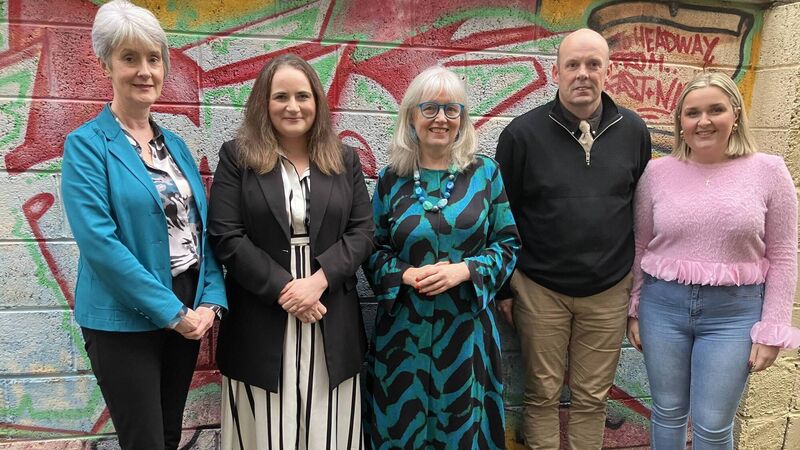'Have a go' attitude helping people with disabilities in Cork move out of nursing homes

(Left to right) HSE Head of Disabilities Angela O'Neill, General Manager of Disabilities Lorraine Egan, Project Officer of Disabilities, Deirdre Carr, Headway Ireland's Paul O’Callaghan, Day Programmes Manager Southern Aisling Corcoran.
People need to "have a go" is the attitude behind a unique project in Cork to help young people with disabilities move out of nursing homes into their own homes.
More than 1,200 people aged under 65, many with acquired brain injuries after accidents or strokes, are living in nursing homes due to a lack of better options around Ireland.














